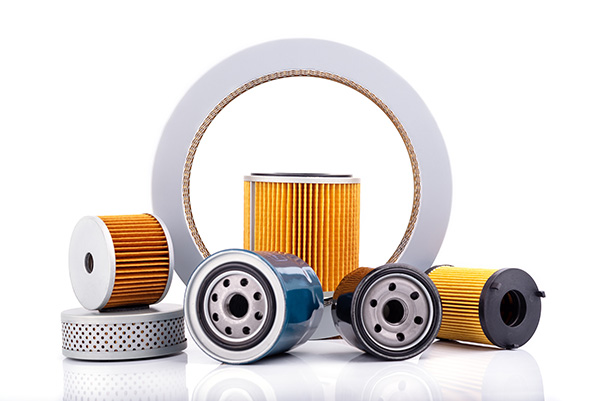
When was the last time you thought about your car's filters? While they may seem like small components, they are crucial in keeping your engine running efficiently. From air filters to cabin filters, each one has a specific function to ensure your vehicle’s optimal performance. So, how often should you replace them? We'll explore the importance of filter replacement for your car's health and your peace of mind.
Why Are Car Filters So Important
Before we dive into replacement schedules, it’s important to understand the role of the various filters in your car. The air filter helps prevent dirt and debris from entering the engine, keeping it running smoothly. The cabin filter, on the other hand, ensures that the air you breathe inside the car is clean, filtering out pollutants, dust, and allergens.
Both of these filters directly impact your driving experience. A clogged air filter can lead to reduced engine efficiency, poor fuel economy, and even engine damage. A dirty cabin filter can make the air inside your car stale or cause your HVAC system to underperform.
How Often Should You Replace the Engine Air Filter
The engine air filter is one of the most important filters in your car, as it helps ensure that your engine gets enough clean air for combustion. A good rule of thumb is to replace it every 12,000 to 15,000 miles, although some vehicles may require it more or less frequently.
If you drive in dusty or high-pollution areas, you may need to replace the air filter more often. On the other hand, if you mainly drive in clean, low-dust environments, you can often go longer between replacements. The best way to know for sure is by checking the filter during routine maintenance visits or when you notice a decrease in performance, such as sluggish acceleration or decreased fuel efficiency.
When Should You Replace the Cabin Air Filter
The cabin air filter works to filter out dust, pollen, and other allergens from the air inside your car. It also ensures that your vehicle’s air conditioning and heating systems operate efficiently. Replacing the cabin filter is recommended every 15,000 to 30,000 miles, but again, this can vary based on your driving conditions.
If you live in an area with high levels of pollution or heavy pollen counts, consider replacing your cabin filter more frequently. A clogged cabin filter can lead to unpleasant odors, reduced airflow, and even the potential for mold buildup in your vehicle’s ventilation system. If you start noticing poor airflow from your air conditioning or strange smells, it may be time for a replacement.
How Often Should the Fuel Filter Be Replaced
Your fuel filter keeps dirt and debris out of your fuel system, ensuring that the engine receives clean fuel. The fuel filter should be replaced every 20,000 to 40,000 miles depending on your vehicle. Some modern vehicles feature “lifetime” fuel filters that may not need replacement unless there’s an issue, but it’s still a good idea to have it inspected regularly.
A clogged fuel filter can cause performance issues such as rough idling, poor acceleration, and even engine stalling. If you’re experiencing these symptoms, it’s worth checking the fuel filter to see if it’s due for a replacement.
How Do Driving Conditions Affect Filter Life
Driving conditions can significantly impact how often you need to replace your car’s filters. For example, if you do a lot of stop-and-go driving in a city with high air pollution, your filters will wear out faster. On the other hand, highway driving at higher speeds generally puts less strain on your filters.
If you frequently drive in areas with dirt roads, construction zones, or heavy traffic, you should inspect your filters more often. Regular checkups will help you stay on top of maintenance and avoid any unexpected issues with your car’s performance.
Signs That Your Filters Need Replacement
Sometimes, it’s not enough to follow a scheduled replacement plan. Paying attention to signs of filter issues can help you catch problems early. Here are some indicators that it’s time to replace your car’s filters:
- Engine performance issues: If your car is sluggish or has trouble starting, it may be due to a clogged air filter.
- Reduced fuel efficiency: A dirty air filter can cause your car to burn more fuel than necessary.
- Bad smells or poor air quality inside the car: A dirty cabin filter can lead to musty odors and poor air circulation.
- Strange engine noises: A clogged fuel filter can cause strange noises as it impacts fuel flow.
How to Maintain Your Car’s Filters
Maintaining your filters is just as important as replacing them when needed. Regular inspections during routine maintenance visits can help identify any early signs of damage or clogging. Cleaning your filters, when possible, can also extend their lifespan, especially for reusable air filters.
Filters play a key role in your car’s performance. Contact Guthrie's Auto Service now for a comprehensive filter check-up and replacement service that ensures your vehicle stays in top condition!